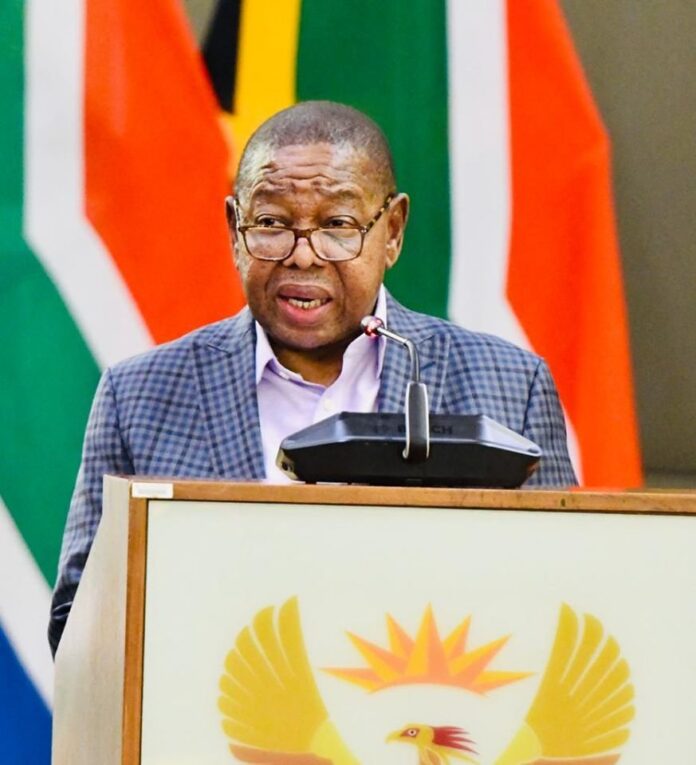South Africa: The Minister of Higher Education, Science and Innovation, Dr Blade Nzimande, says that support from the Department of Science and Innovation (DSI) to small-scale farmers in the cotton industry will lower the farmers’ input costs by some 8-12%.
Small-scale cotton farmers from Limpopo and Mpumalanga will receive two cotton balers on Wednesday, 24 August 2022.
The handover of the baling machines in Matlerekeng Village, Limpopo, was made possible through the DSI’s Agricultural Bioeconomy Innovation Partnership Programme (ABIPP). The Department and its entity, the Technology Innovation Agency (TIA), provided funding to Cotton SA to procure the locally manufactured and assembled machines. The balers will assist smallholder cotton farming communities in saving on cotton harvesting and transporting costs.
“The machines will enable farmers to conduct primary agro-processing using a hub-and-spokes model so that they can leverage economies of scale to aggregate their produce into bales, which the gins can accept without additional costs for the small-scale farmers,” said Minister Nzimande.
Gins will not require a handling fee for the compacted round bales, and the farmers will be able to load more seed cotton on the inter-link truck for transportation. As a result, the farmers will earn an extra R0,73 per kg for their seed cotton.
About ABIPP
ABIPP was established by the Department of Science and Innovation to implement partnership programmes in support of a competitive and sustainable agricultural economy. ABIPP is implemented by the Technology Innovation Agency on behalf of the DSI. It facilitates, coordinates and funds multi-institutional, multi-stakeholder and co-funded agricultural bioeconomy initiatives contributing to increased productivity, food security and rural economic development.
